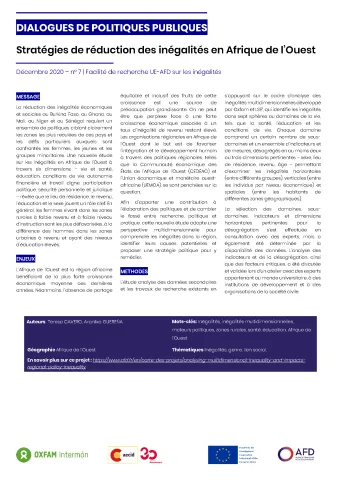Share the page
A Strategy for Reducing Inequalities in West Africa
Published on

Reducing economic and social inequalities in Burkina Faso, Ghana, Mali, Niger, and Senegal requires a set of policies clearly focused on the most remote areas of these countries and the particular challenges facing women, young people, and minority groups. New research on inequalities across six dimensions in West Africa – life and health; education; living conditions; financial autonomy and dignified work; political participation; and personal and legal security – reveals the significant roles played by location, income, education, and gender. In general, women living in rural areas with low incomes and low levels of education are the most disadvantaged; contrasting with men in urban areas with high incomes and high levels of education.
Useful Information
-
Authors
-
Teresa CAVERO, Arantxa GUEREÑA
-
Coordinators
-
Edition
-
7
-
Number of pages
-
2
-
ISSN
-
in process
-
Collection
-
Policy Dialogues
-
Other languages
